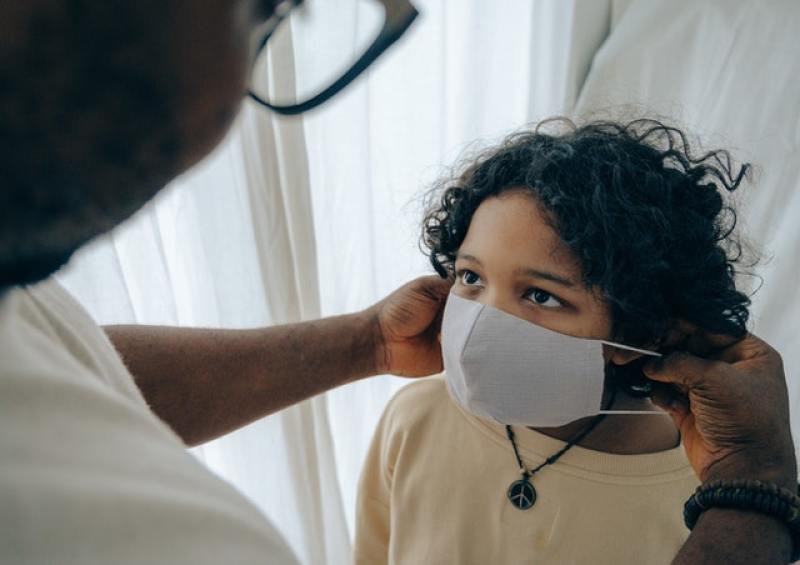
Stanford University Professor of Medicine Dr. Jay Bhattacharya revealed in an interview with One America News Network that teachers who teach unmasked kids at school are actually at "zero additional risk" of getting infected with COVID.
In the interview, OANN reporter Stefan Kleinhenz asked Bhattacharya the effects of children wearing masks in school and the rate of exposure teachers have to the virus. Battacharya pointed out the difficulty teachers face when speaking to a group of people while wearing a mask, as per requirements to do so prescribed by the government, as well as the difficulty children face when they are required to wear masks in school.
The professor then revealed that there is actually no need for teachers to wear a mask if they are already vaccinated - or not yet vaccinated. He also discouraged vaccinated teachers from worrying that they may get exposed to the virus without a mask especially when children do not wear masks for protection.
"We have a situation here in the United States where every teacher that wants a vaccine is offered a vaccine--the vast majority has taken it. The vaccines protect against severe disease. If you've had the vaccine and if you've waited a week or two after you've done this, done--you are protected against hospitalization and death. So a teacher going into a classrom, facing children who are unmasked...are effectively at zero additional risk."
Bhattacharya cited the case in Sweden who operated all their schools last year even without masking and social distancing guidelines. The teachers were not yet vaccinated at the time as well. The doctor said that the low number of cases of teachers in Sweden getting sick with COVID indicates that the school is the safest place to be as compared to other places teachers would have been.
During the interview, Kleinhenz also clarified the issue on the effect of the Delta variant which has been purported to be more contagious to young people. Bhattacharya denied such information, saying the variant's contagiousness is still debatable as it may or may not be more infectious than the first variant that spread from China to other places around the globe,
and pointed out that as long as the person has been vaccinated for COVID-19 there is really no need to worry.
"I don't see any evidence that it is more deadly for either youth or older people. And here's the most important thing, for vaccinated people...the Delta variant doesn't change anything. Your vaccine and you are faced with the Delta variant, you have substantial protection--almost zero likelihood of getting or dying from the disease."
"The vaccine has de-fanged the disease," Bhattacharya stressed, adding that those who've been infected before and recovered already have protection against it.
Bhattacharya, who is acts as Stanford Center on the Demography of Health and Aging Director, has become one of the medical professionals sought by the media on the coronavirus eversince he has spoken last year against the lockdowns conducted governments. He pointed out that prolonged lockdowns result to "very real health risks." His anti-lockdown movement embodied in the website, "Great Barrington Declaration," was reported to have resulted in "fierce resistance."
The San Francisco Gate reported that the "Great Barrington Declaration" was signed by "30,000 academics, medical practitioners and public health scientists from the U.S., U.K. and other nations" in agreement to Bhattacharya and his colleague's proposition that an "age-stratified" approach to lockdowns should be imposed by governments instead. In particular, the document reveals that the young and healthy should be given the leeway to live normal lives while elderly should be sheltered from the rest of the population for their protection.
"As infectious disease epidemiologists and public health scientists, we have grave concerns about the damaging physical and mental health impacts of the prevailing COVID-19 policies. The most compassionate approach that balances the risks and benefits of reaching herd immunity is to allow those who are at minimal risk of death to live their lives normally to build up immunity to the virus through natural infection, while better protecting those who are at highest risk,"
Bhattacharya and his companions said in the document.
The San Francisco Gate disclosed that other medical professionals disagreed with it because of its "impossibility" because it is "wishful thinking" since it is difficult to "fully isolate" the elderly and that people are not really that "smart and responsible." Other experts also pointed out that the document " ignores increasing evidence of younger people suffering longer-term health consequences from moderate or even mild COVID-19 infections."




























